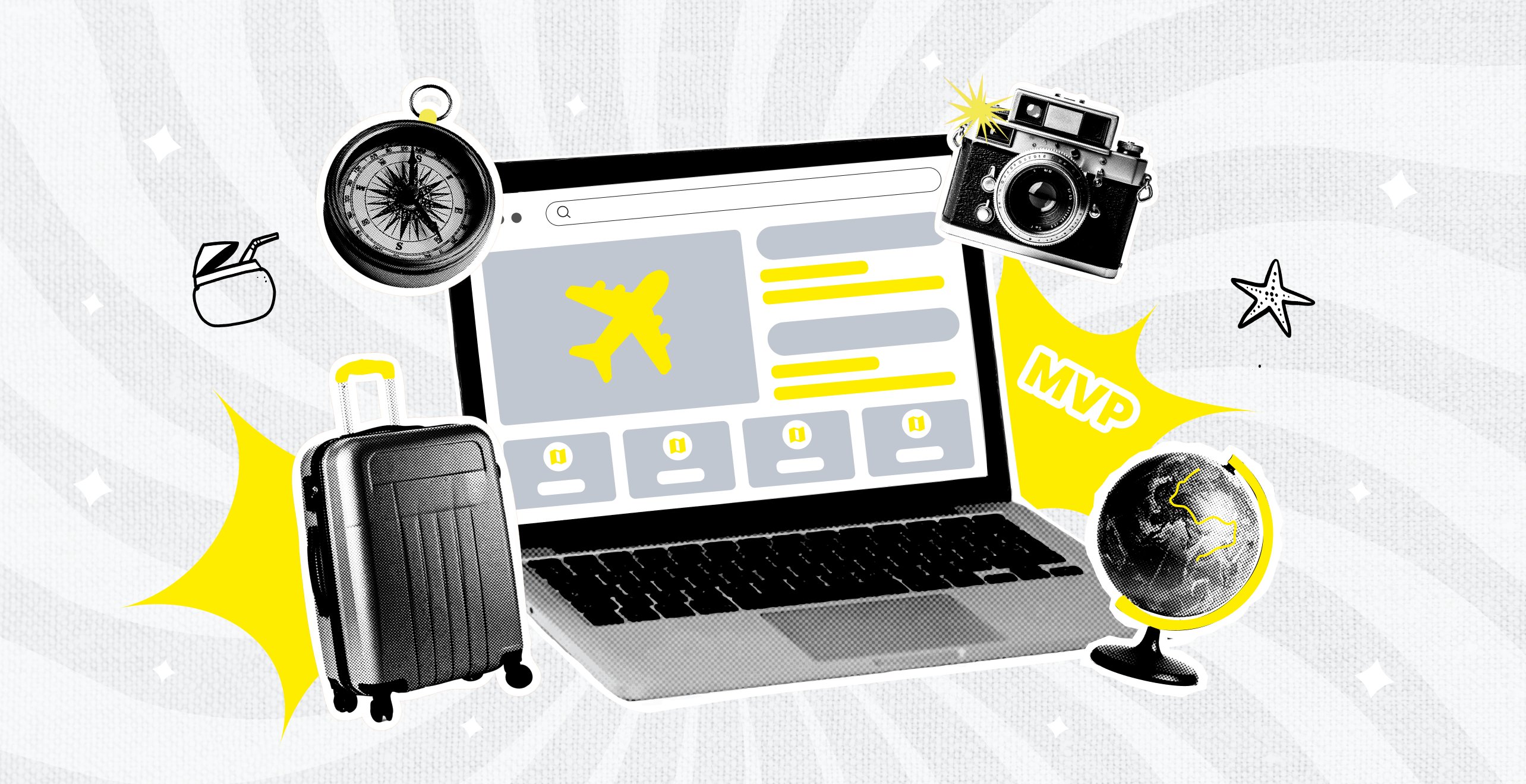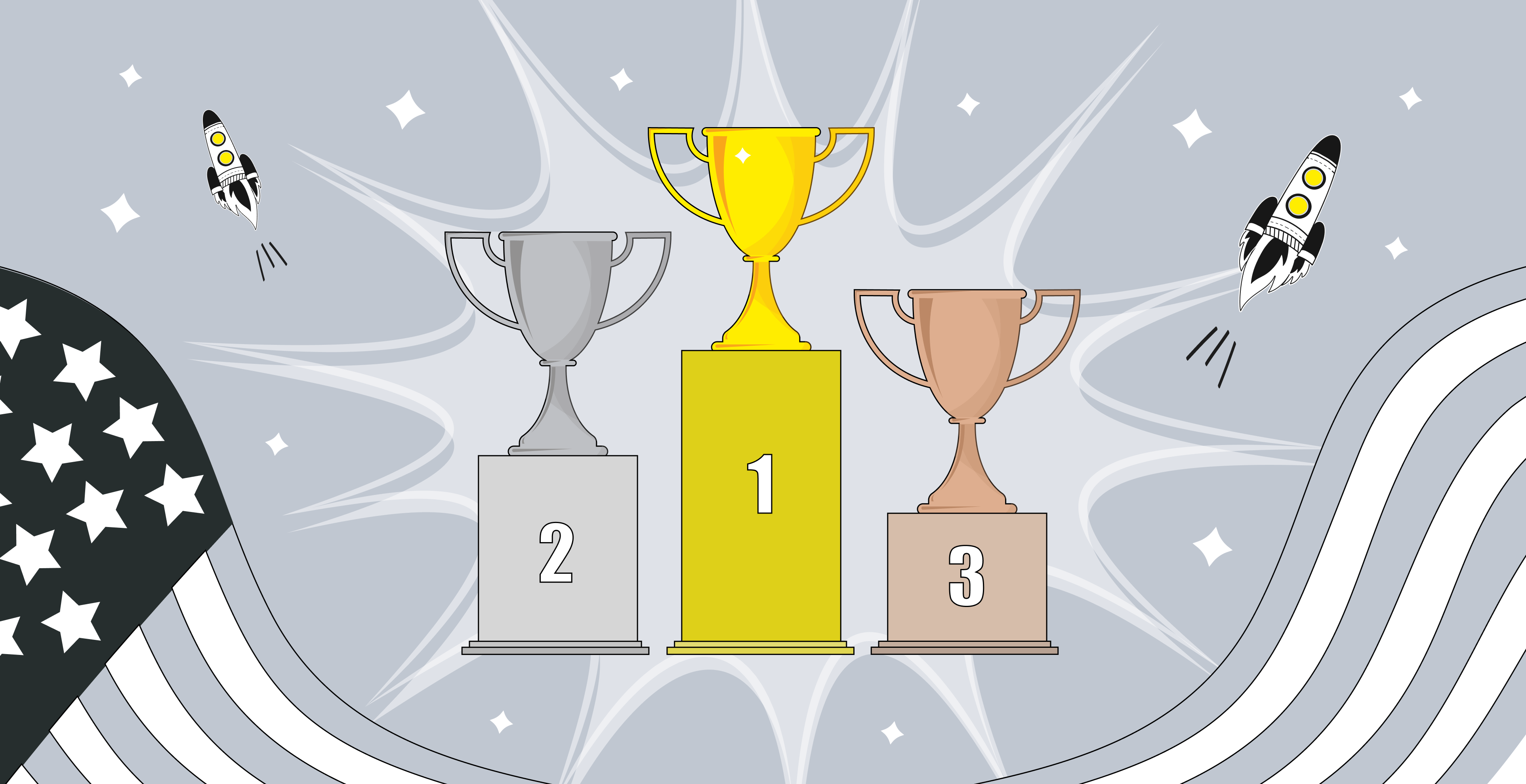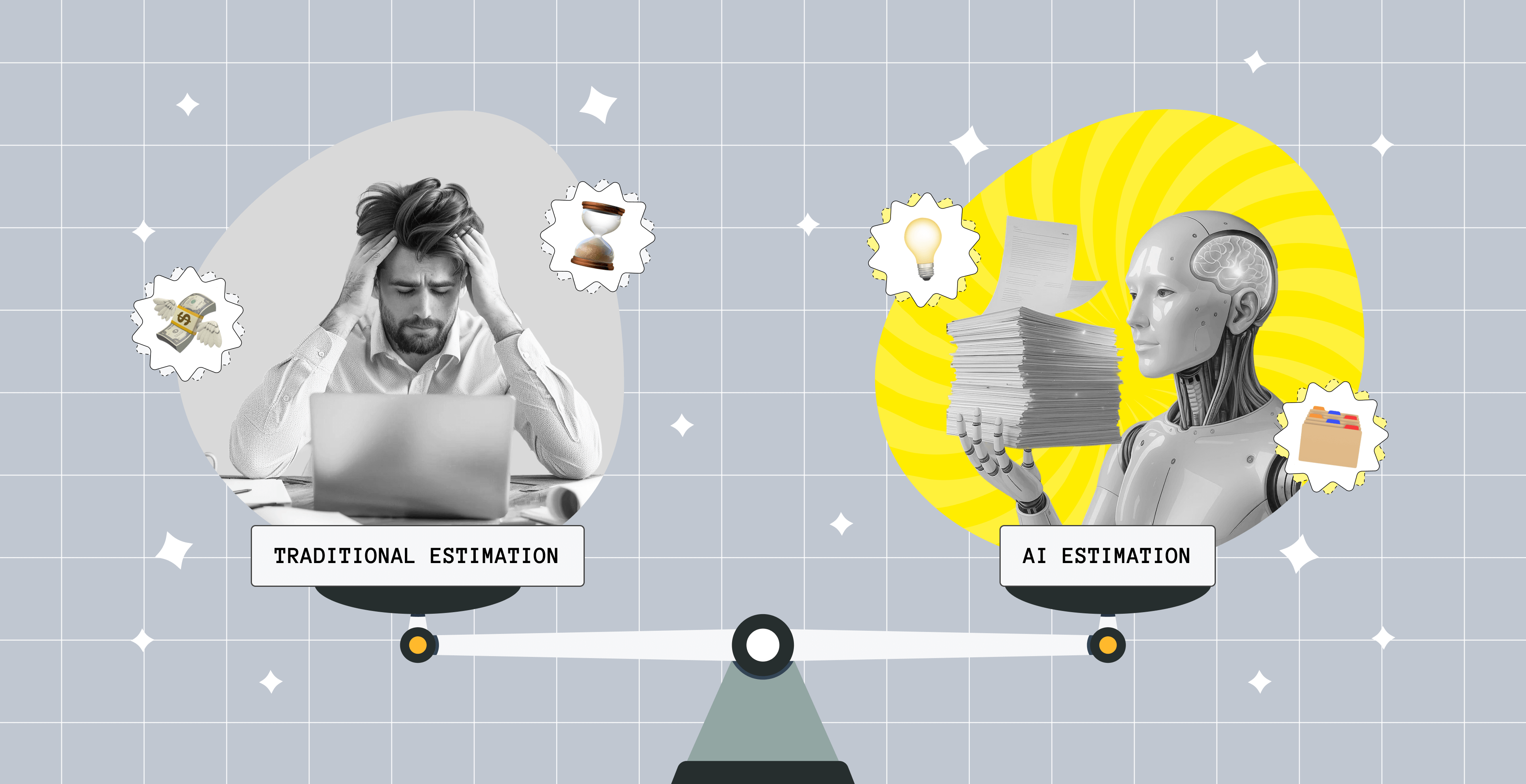Creating the New Era of Work Using Generative AI - Startup Stories with Max Brenssell

Anton Oparienko (COO, Upsilon): Today, I'm pleased to have Max Brenssell with me, the co-founder and CEO of Spoke.ai. Can you tell us a bit more about your background? Have you always wanted to launch a startup?
Max Brenssell (Co-founder and CEO, Spoke.ai): I'm originally from Germany, but then also lived abroad for 6 years, that was always a really cool experience for me. I come from a very entrepreneurial family, where everyone is building companies in one way or another. And that was always my role model growing up as a kid.
After finishing university in 2016, I started working in a startup that was quite small at the time. There were around 60 people when I joined. From the start of my career, I've always been in a startup environment. So it was very clear to me that one day, I would also love to build my own company.

Anton: Apart from Spoke.ai, you co-founded Plantclub, a startup that provides workplace plants, which was actually founded in 2020 during COVID. So how did it affect your business?
Max: That was definitely an interesting time back then. I started Plantclub together with a former colleague and friend of mine, Jack. We were both working in startups and always knew about the struggle of trying to create a nice work environment with limited resources. That's why we launched Plantclub with a strong focus on design, helping companies build healthy, productive work environments.
And initially, there was, of course, a lot of uncertainty when COVID started: Will the office be a thing? Will it cease to exist? Will we go back at some point? There was a lot of uncertainty for us back then, and we decided to also launch an e-commerce site for the business. Selling plants online was kind of our COVID strategy back then. Obviously, now, in hindsight, I think two things really helped us. The first one is the government which was doing only temporary lockdowns and not closing offices for two years.
And coming out of COVID, we saw that it was a blessing in disguise because all these companies then had to figure out how to reimagine their workplaces and create more space for creativity and collaboration. So they started to redesign, and we were a part of that process for many of them here in Berlin and other cities.
Anton: Was it just design integration, or do you actually support the plants in the office space?
Max: We started with a full-service model, which included design (installing plants, greenwalls, trees, etc.) and taking care of them. Then we gradually move to an outsourced model where we also have partner companies taking care of the plants because our main in-house expertise is the design-focused approach.

Anton: You worked in several fast-growing companies like N26 and Circ. What are the main challenges when a company grows quickly?
Max: I think we had very different challenges due to the nature of the business. If we're talking about N26, it was more around regulations because it is a fintech startup. International expansion, which I was mainly working on, was always a question of regulation and dealing with the local regulator. At Circ, dealing with e-scooters and hardware is a whole different story altogether.
The businesses were very different in a way, but also there were a couple of similarities because in both companies, the team grew extremely quickly. So at N26, we grew from 60 or 80 people to around 1500 in three years. From my and my co-founder's experience, if the team grows so quickly, and the company as a whole grows so quickly, you have an explosion in stakeholders that you have to deal with. And it's very hard for people to break out of old habits.
So if you've been there from an early stage, you know exactly who to talk to. But then, if you keep adding new people, they don't have that same level of knowledge. This will create a lot of noise and inefficiency in the organization. And that was one of the starting points, or early inspirations for Spoke as well, because we saw this massive pain of communication and inefficiency as the teams were scaling at those companies.
Anton: Speaking about regulation, do you think the age of regulation is coming to the AI world?
Max: Yeah, definitely something that we're following very closely. We also, even as a small early-stage company, try to get actively involved through the German AI Association, for example. I think it's a typical example right now, where Europe is trying to be at the forefront of regulating AI with the upcoming AI Act. There are still a lot of issues and open topics that are being discussed there.
We personally believe that regulation is important. It has to be designed in a way that doesn't hinder innovation and gives Europe a competitive disadvantage. Because we see that there's an AI arms race between the US and China going on. And Europe is trying to find its place and its edge. I think that well-designed regulation and a strong focus on privacy and the ethical use of AI could be a competitive advantage for us in Europe.
Anton: Let's speak about Spoke AI. Can you describe it in one or two sentences?
Max: At the core, what we build is AI summarization of text data. We apply that to different communication channels that people already use, for example, Slack, and use our summarization to save users time and make it more efficient to digest large amounts of information.

Anton: What is the core technology at the center of the product? Are you using ChatGPT or something of your own?
Max: We do a bit of a mix. We had our first product, the Spoke App for Slack, live for quite a while in closed beta. And we used that to build up a data set, which we can use to fine-tune pre-trained models, like the ones from OpenAI. But we're quite agnostic there. There are obviously new models coming out from Meta, Microsoft, Google, etc. This is a very interesting dynamic. So we want to be very flexible in terms of working with these pre-trained models and fine-tuning them using our proprietary data for our specific use case. That's the open-source side.
Then in-house, we're building our own models that are focused on privacy and data security. This is more about detecting and anonymizing confidential information, PII, etc.
Anton: What about data privacy and security for pre-trained models? How do you approach it?
Max: There're a couple of things that are table stakes in terms of best practices. We're very aware of those and also in the process of doing important certifications like SOC 2 and ISO 27001. That's the regulatory compliance side.
But we always like to go beyond that. For example, we give our users the possibility to opt in or opt out of us saving their data. So there's a way to use Spoke that doesn't let us save any of your data. But you can still use our AI summarization. I think this flexibility is super important in terms of giving the user control over what happens with their data.
Anton: The productivity tools market is now thriving. What makes you stand out? What additional value does AI provide?
Max: There are a couple of things. The first one is building privacy first and ethical AI products, like I just mentioned, and putting the user in control of what happens with their data. AI, in general, is a lot about creating trust since it's a new technology for many people.
Then beyond that, the next product that we're launching is actually applying our AI summarization across many different tools. It'll be very powerful, for instance, for product managers, who typically work on 8 to 10 different tools every day, spanning from ticketing to Figma and Notion, etc. We are building a smart layout to bring together all of this communication and apply our summarization to cut through the noise. It enables people to work very flexibly and efficiently across their favorite tools.

Anton: You have a web app and an app for Slack. Why did you decide to make a branch towards Slack workspaces?
Max: I think everyone who uses Slack really likes it but also knows it's pretty noisy. We've been users of Slack for many years, so it was a natural starting point. We decided on Slack versus Teams, for example, just because the type of company that typically uses Slack tends to be a little bit smaller, on average, and a little bit more open for innovation and new products. Teams are typically used by larger enterprise customers because it's bundled into the Microsoft suite.
That's why the company that uses Slack, for us, was the more natural starting point for testing and giving feedback on new technology like AI summarization.
Anton: Don't you think that the problem you're trying to solve is more painful and present for large companies?
Max: Absolutely. I think the problem of noise and how you manage your communication definitely scales with the size of the team. And right now, what we see is that companies between 10 and 2000 people are already using Spoke. But longer term, we would love to go beyond that and support even bigger companies. For that, we need to be enterprise-ready in terms of the features that we can offer.
Anton: Regarding Slack, how do you feel about Slack and OpenAI partnering together? Is that a big challenge for you?
Max: It's super positive that a lot of the tools we integrate with are launching their native AI features. That drives general adoption and makes it more accessible for people to play with AI and use it in their daily lives. With regard to Slack, specifically, I would love to test the actual OpenAI app. It's interesting that they are building this app for Slack rather than Slack developing native AI features, which I guess is due to the whole Salesforce acquisition and AI integration there.
As for us, we are already launching features in our App for Slack that go far beyond what the use case of the general OpenAI app for Slack will be. We try to innovate a lot on the Slack app as well and test new features there. So I'm not too worried about it being a direct competition. But I rather think it's a positive move because it brings AI more into the mainstream.

Anton: Let's talk a little bit about funding since you recently announced a pre-seed funding round. What do you think attracted investors to your company?
Max: We did our pre-seed round last year. And what I would say is that it's very interesting right now, specifically in AI, because it's a little bit countercyclical. You have the whole market being a little bit depressed right now for various reasons. But then, within AI, there's a lot of hype.
My impression is that many investors we speak to still want to learn about AI. And they do not necessarily have a very strong thesis yet of how they look at the AI market and the value chain. Many people are trying to understand general trends within AI and where the value will be created.
That's understandable because it's a very fast-moving and early space. So I think this year will be very interesting to see what the different categories will be, and how the underlying open-source technology will develop.
Anton: Spoke is co-funded by the European Union. Why did you decide to turn to government startup funding programs? How does the procedure differ from VC?
Max: We always saw grant and innovation financing as a great way to extend our runway, and it's non-dilutive as opposed to startup equity financing. So it has a lot of advantages for the company to bring in extra cash that doesn't come from VC investors.
I would say that the way of working with these kinds of programs is obviously very different. It's much less fast-paced and much more about process and bureaucracy, as you might expect. So I would say it's not easier to get public funding versus VC funding, and you shouldn't underestimate either. There are some similarities, but they're very different at the same time. That's the reason why they complement each other well.
Anton: What are the things you wish you knew before raising funds?
Max: We were quite lucky because we already had support from a bunch of great angel investors. I would recommend not to underestimate who you partner with as your investors. People you're getting as co-founders or investors, or early employees might be with you for the next 7 to 10 years. So don't underestimate this kind of commitment in terms of the time horizon.
Anton: You now give early access to the product. When do you plan to finish the Beta testing and launch it for everyone?
Max: With the Slack app, we're in open beta, which is a cool milestone for us. Anyone can just sign up and try it. We will probably move out of open beta sometime this year when we have more of the features out there that we want to build. And for our second product, a smart inbox that works across different tools, we're starting in a closed beta, and then we'll launch into open beta later this year. But that is not fixed yet in terms of date.
Anton: As a co-founder of the AI-focused startup, how do you assess the current state and future of AI? What challenges and opportunities can it bring?
Max: There's a little bit of overreaction when it comes to regulating AI. I think in the next couple of months, we will see more of a dialogue between people who build AI companies and the regulator, trying to find a way to define a common set of rules. For example, age restrictions have been a big topic with students using ChatGPT. So this year will be about finding the right balance between innovation and regulation.
In general, we're on a good path, and I'm not worried about the actual technology at this point. While it's gotten a lot smarter over the past couple of years, it's still not like an AGI that we have to be worried about.
Anton: Speaking about AI-focused startups and companies that are bringing AI business ideas to life, who do you think has an advantage, smaller companies that are more agile and can transfer quicker or bigger companies that have more resources and more data?
Max: In my opinion, it's on the large companies and enterprise side because they already have access to all of these users and data and can add AI features to an already existing product suite. As for SMEs, that's where startups can really be innovative right now and find early adopters of new technology. Then, hopefully, based on this initial product-market fit also start to move more towards enterprise and compete there.
It's been interesting to see some companies, obviously also being worried about not disrupting themselves, like Google with their ad-based search business. It can be really difficult to launch a new technology that might disrupt your core product. So I think in areas like that there's definitely potential for companies to innovate and launch cool things.
Anton: Do you think AI will change the era of Google and search results?
Max: Yes, what we expect to see is AI being embedded in all kinds of different software. Instead of using a search engine to look for something, in the future, a specialized AI will give you the answer proactively within the software that you're working in. So it's really about embedding AI in existing workflows. I think it will be a very different experience of how we search and find information.

Anton: Sounds interesting. That was my last question. Maybe there is something else you want to say?
Max: Thanks for having me. I would like to invite everyone to give AI summarization a try with our free Slack app. We love to save people time and get user feedback. So feel free to test and reach out if you have any questions.
Anton: Great! Thanks a lot, Max, for your time and for sharing your story.
Have a startup project in mind but need someone to help with the tech side?
Upsilon's team has talented experts who can help you develop your product.

to top

















